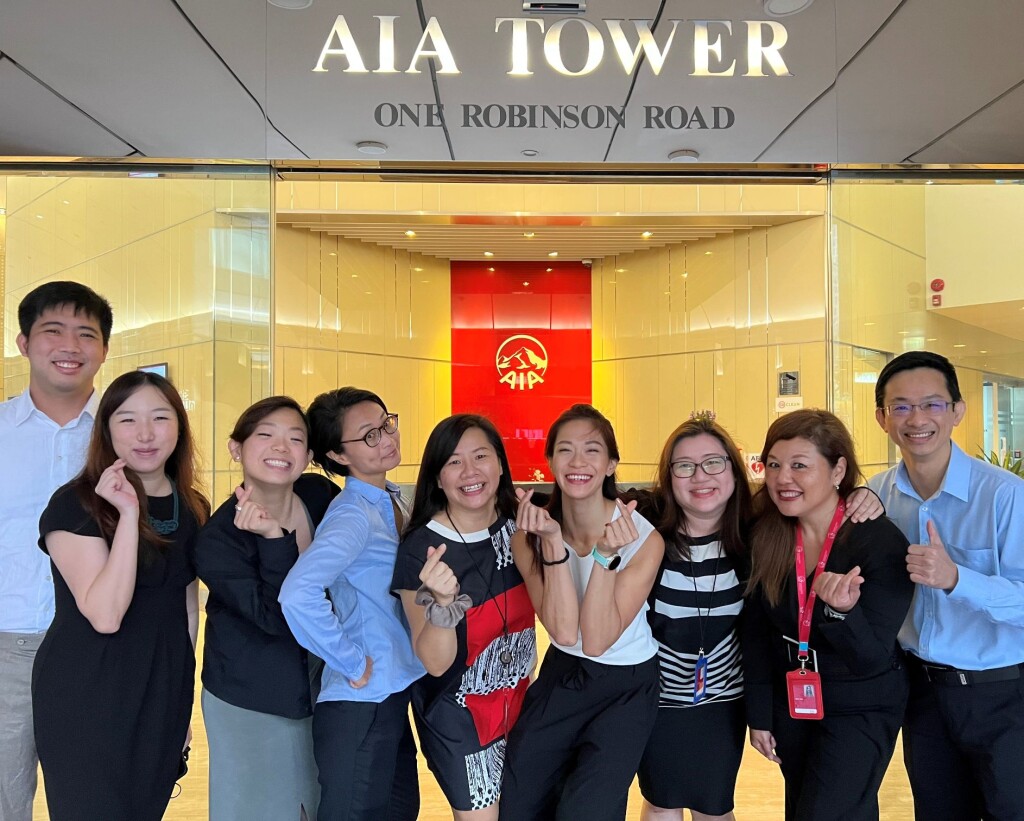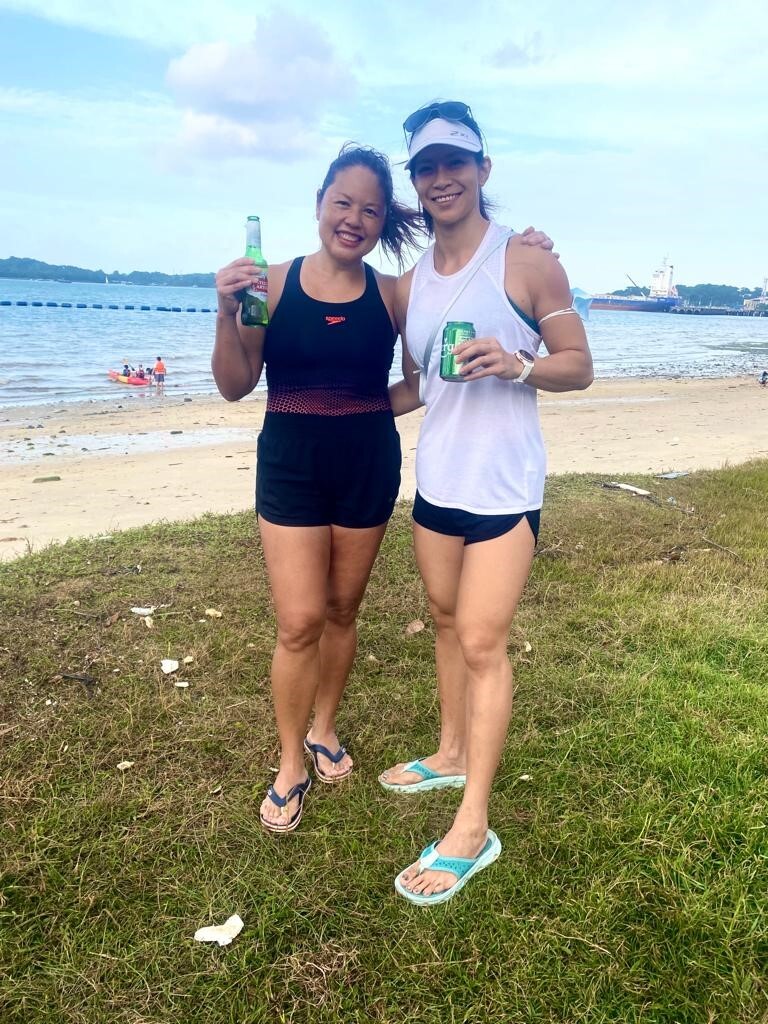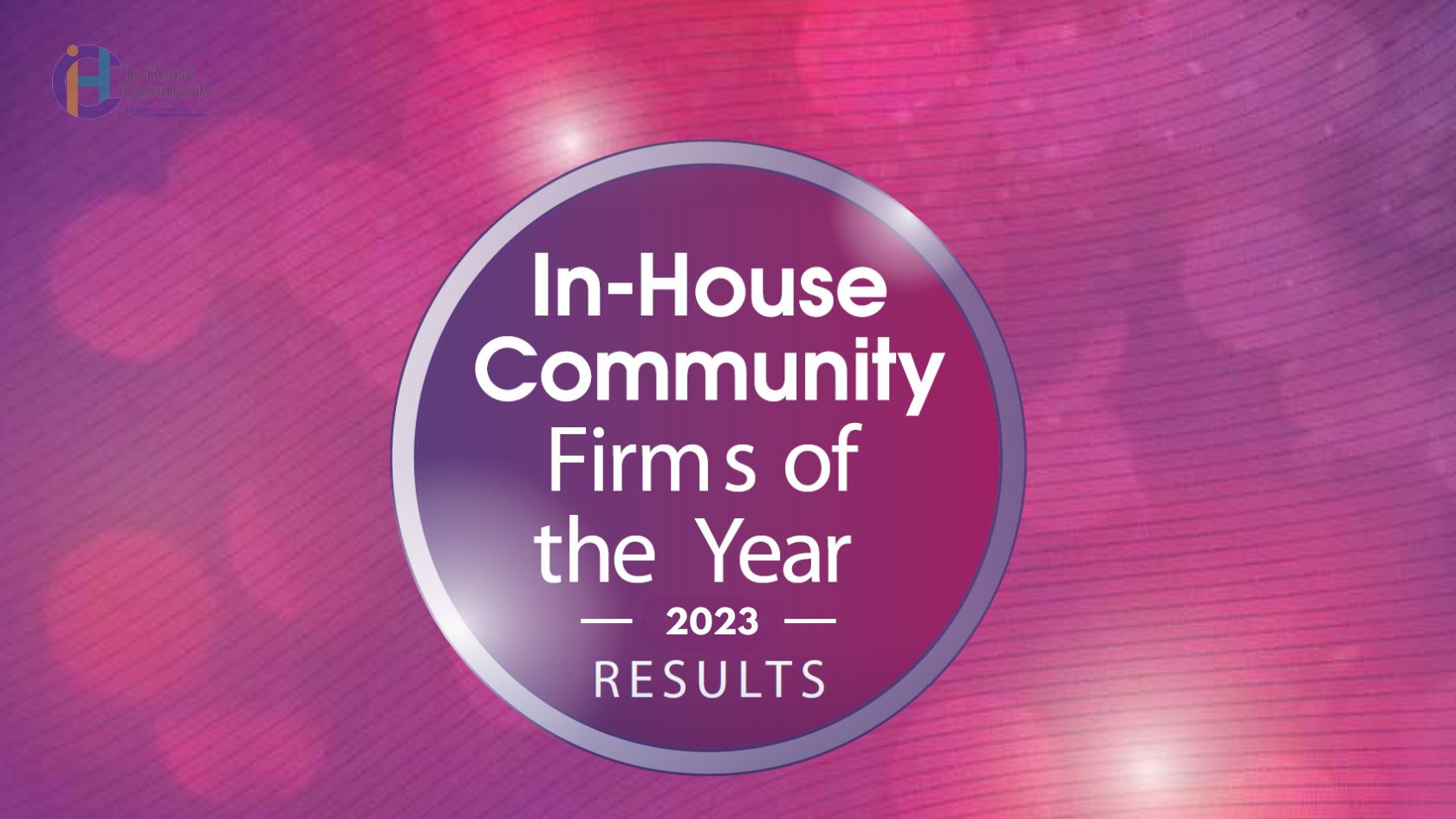Winning words from IHC’s In-House Counsel of the Year, 2021.
1. Can you please give us a snapshot of your career journey thus far?
This will be my 10th year with AIA, the largest independent publicly-listed Pan Asian insurance group. Like many general counsel, I started my legal career in private practice. My main specialisation was in mergers and acquisitions (M&A). I’ve advised on transactions ranging from take-overs of SGX-listed companies to offshore investments by PRC state-owned enterprises in the course of my career in practice. A key turning point in my career was when I moved to Hong Kong in 2012 for my first in-house role. This was with AIA Group’s joint venture with Discovery Group, the largest insurer in South Africa. We were one of the first insurers in Asia to venture into the health and wellness space – the start of a strategic shift into helping our customers not only protect well, but live well. My portfolio was also a unique blend of business and legal, as I was both Head of Partnerships Development and General Counsel. That subsequently led to a different role within the AIA Group Legal team, and finally to my current General Counsel role with AIA Singapore.
2. With over 5 years under the belt as General Counsel of AIA Singapore, what has the term “GC” come to mean to you?
“General” means this role is a generalist one. Besides in-depth specialist legal knowledge in your organisation’s primary business activities, the GC must also have the ability to spot issues across a broad domain of laws that may also affect the business – from employment, to competition, tax, IP, etc. Beyond the law, for the General Counsel to be an effective and valued member of the Management team, he/she will also need a slew of other skills – from enterprise thought leadership, to cross-functional collaboration, project management, talent attraction/development/retention, etc. The ability to foresee business and regulatory challenges, opining not just on what the law is today but also what the law ought to be, and forming recommendations on all the grey areas in between are all critical skillsets. Which is why the “T-Shaped Lawyer”, a concept created by Peter Connor of Alternatively Legal, resonates strongly with me. This is the model I espouse for my team. In a nutshell, Peter’s definition of a T-Shaped professional is someone who has deep domain expertise in one discipline, together with various competencies, skills and knowledge from other areas. This facilitates cross-functional collaboration with other specialists across other disciplines to innovate for the organisation as a whole. This is a critical success factor. Beyond strong technical expertise, all in-house counsel should also gear up on various other competencies and skills to effectively facilitate business and pre-empt stumbling blocks (legal or otherwise). This could mean, for a data protection counsel as an example, taking up courses on Big Data, data analytics and digital marketing strategies. Knowing data privacy laws inside and out is not enough; one’s value and effectiveness as in-house counsel is in finding solutions for the business within the regulatory framework. To do so, he/she must have a nuanced understanding on how their business products are designed and sold, how the purchase data is used to prompt new or repeat sales, and a general understanding of how the marketplace is evolving.
…a T-Shaped professional is someone who has deep domain expertise in one discipline, together with various competencies, skills and knowledge from other areas. This facilitates crossfunctional collaboration with other specialists across other disciplines to innovate for the organisation as a whole.
The “Counsel” aspect of the GC role, to me, means being an ‘advisor’ to the Management team and the business, in all aspects of the word, rather than a technical ‘lawyer’. This means I weigh in not just on legal or regulatory issues, but also on our overall strategic direction, risk culture and risk management framework and corporate governance. I believe it is also appropriate and expected for the GC to step up as the ‘moral compass’ for the CEO and enterprise, as needed, given our ethics training and legal profession code of conduct.
3. As AIA’s youngest EXCO member, you bring a unique perspective. From your viewpoint, what does leadership look like?
At the time of my appointment, not only was I the youngest EXCO member, I also inherited a team of senior lawyers who were all more experienced in Singapore insurance matters

Masks on: Penny with her Team
than I was. I knew I had to quickly establish credibility and strong relationships not just with my Management peers, but also my team. Gaining stakeholders’ trust doesn’t come automatically with authority or title.
I would call my leadership style – ‘peer leadership’. The complete opposite of the traditional rank-and-file approach. My role isn’t to give or dictate answers and solutions. Rather, I encourage the team to collaboratively challenge each other (myself included!) so that “the best idea wins”.
I believe you get the best out of people when they are trusted, valued and heard. So I seek to marry my counsel’s passions with the enterprise and team purpose, and empower them to use their judgment to perform their roles and responsibilities. This is far easier said than done, and involves both hard and heart-work! It starts with ensuring I have the right talent – strong counsel who take immense pride in what they do. From there, I seek to understand their motivations and passions, and connecting this back to the Legal function’s and AIA’s r’aison d’etre. Lastly, empowering and supporting them so that we optimise our operating rhythm to support the business effectively.
4. Law is said to be a teaching and learning profession – we don’t go at it alone. Has mentorship played a meaningful part in your career and, if so, can you share some experiences in this regard?
I have benefitted immensely from various mentors – both formal and informal. Being part of AIA’s structured mentorship programme helped me to develop a working style aligned with our leadership essentials and culture, and grow my professional network across the Group. Informally, I have had the privilege and honour of working with and learning from many talented, driven and experienced senior executives. The AIA-Discovery JV CFO, my line manager, taught me the importance of effective communication. We tend to assume that lawyers, given our training and advocacy skills, communicate well, compellingly. This

Masks off: Penny with her Team
works if you are speaking the same lingo as your audience, and your audience is open to your message. This gentleman gave some advice that still sticks – he said no one would want to eat dry wholewheat toast, even though it is obviously good for us. If you add a touch of honey or jam, however, then you won’t be able to stop the flies from swarming in. While it was obviously a joke he cracked to lighten the mood then, it was a bit of an a-ha moment for me. No matter how technically accurate and robust advice is, it serves no one if it is not understood or easy-to-digest or accept. This doesn’t mean sugar-coating or being a ‘yesman’ to the business. Rather, the best chance of sound advice actually being taken is when that advice is punchy and compelling.
5. The topic we wish could be spoken of in the past tense, but is still all too present – COVID-19: what challenges and/or opportunities have you experienced in the face of this pandemic or anticipate still to come?
COVID-19 posed immediate and urgent challenges to our business, since life insurance is still traditionally sold face-to-face in Asia. The legal team was thrust into the forefront of navigating a slew of new laws and regulations passed by the Singapore government that affected almost all aspects of our business, including having to find quick solutions to facilitate non-face-to-face insurance sales while most staff were working remotely.
While stressful, the pandemic also provided numerous opportunities for legal to take the lead in suggesting business solutions – including introducing our fully digital in-house contract approval platform, that fortuitously had been in the planning just prior to the pandemic.
6. The difficulties presented by the pandemic have highlighted cracks across sectors and accelerated innovation to fill these. In your experience, has this proved true in the legal function?
With the slew of legaltech offerings in the market now, it is tempting to start shopping for a technology platform to facilitate our work. Technology solutions, however, are not cheap and involve significant enterprise effort to implement. It also requires buy-in from business end-users. For legal departments at early stages of their innovation journey – first consider if processes can be simplified or removed altogether. Large conglomerates, in particular, have inherited various governance requirements and processes that may once have been necessary but are no longer relevant or fit-for-purpose. Business models evolve, as does enterprise risk tolerances. It is incumbent upon the gatekeepers to regularly revisit their review and approval processes. Do a risk assessment: what risk was that control or process trying to mitigate against? Does that risk still exist, or is it still outside the enterprise risk appetite? If yes, then is there a simpler way to mitigate against that risk? If no, then should that control

Team bonding session
or process be removed? Legal innovation isn’t just about technology, but optimising the way lawyers operate.
7. The role of a lawyer can be a demanding one, made all the more challenging in a position of authority. What tools do you employ to keep afloat in these trying conditions?
I’m sure you’ve all heard the story of the professor and his “rock, pebbles and sand” experiment with his students. Be clear which are the rocks, pebbles and sand in your life – prioritise. Fill up your life’s jar with your rocks, and then the pebbles and sand can follow. Even if it seems the jar is already full once filled with rocks, you’ll find pebbles and sand can still fit in. But if you put sand into the jar first, there won’t be any room for the rocks or the pebbles. The same can be applied to our lives – both professional and personal! If you spend all your time and energy sweating the small stuff, you will never have room for the things that are truly important.
I don’t profess to get it right all the time – there are almost always competing priorities. When it comes to tough calls, I ask myself, “If I died tomorrow, would this still be the right decision for today?” That usually sets me on the right track.
8. Is there any advice you wish to give young aspiring in-house counsel?
Moving in-house from private practice will require a fundamental mindset shift, and many adaptations to your working style. At a firm, you are a fee-earner, and the advice and opinions you churn generate revenue. They are an end in and of themselves. Once in-house, you will no longer be a revenue-generating function on your own. Your advice and opinions are ultimately to enable your business colleagues to make informed decisions, so that they can generate revenue while avoiding the no-go zones. They are a means to an end, so always have that end in sight with every line of advice you write. Stay curious, and humble. Listen more than you speak. There is something to learn from everyone, even if it is just what not to do! Empower yourself for success by identifying who or what your enablers are and building a strong network around you for support.





















